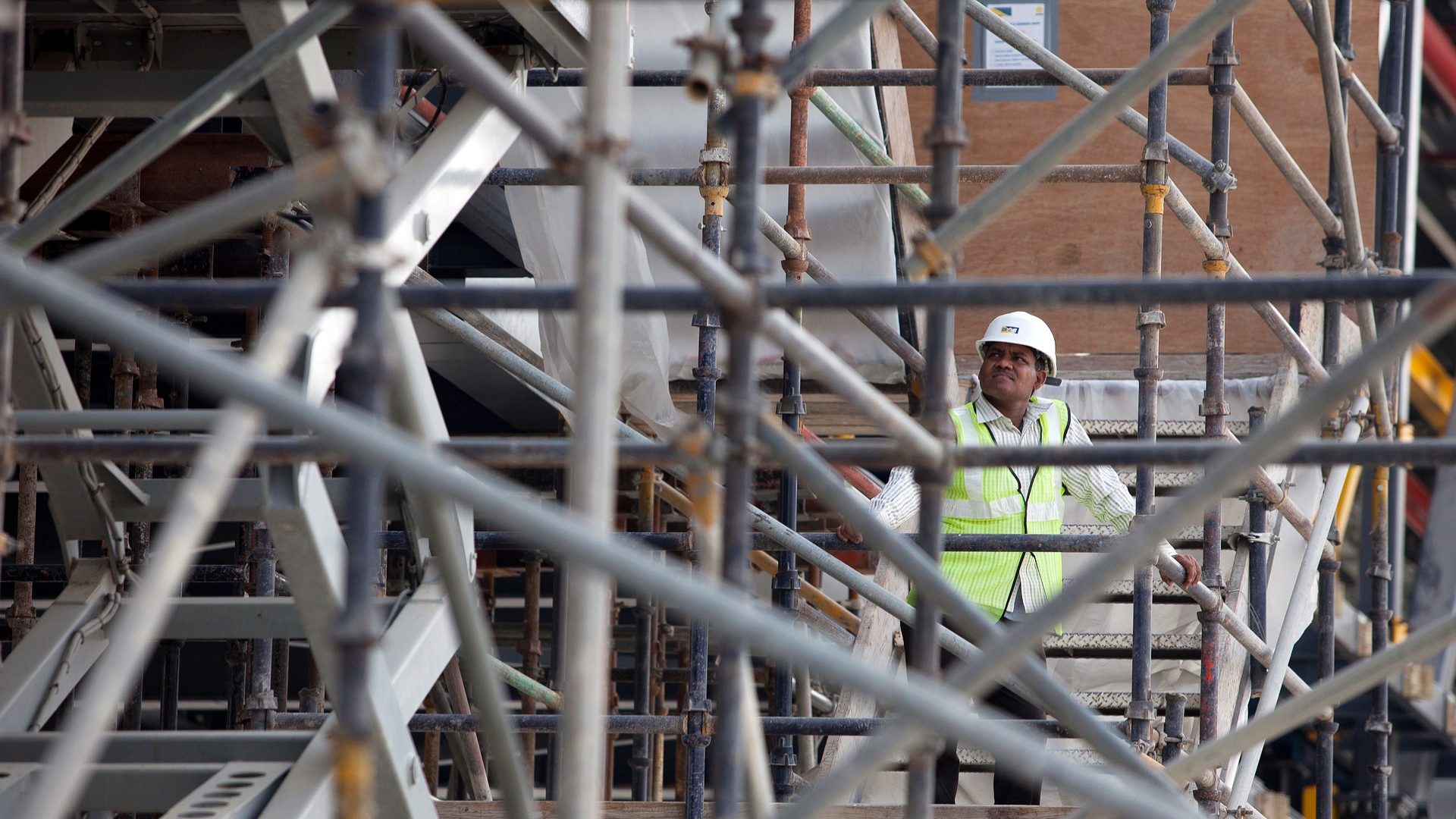Building firms’ budgets valid for ever shorter periods as costs soar
Construction costs for new homes in March were up 3.0% on February and 11.6% on a year earlier, mainly due to a rise in the prices of materials, according to INE figures.
Construction companies in Portugal are submitting budgets for work with increasingly short periods of validity, due to the uncertainties generated by the escalating prices of raw materials and energy, and the disruption of logistics chains, according to the largest sector association.
“Given the current levels of uncertainty, it is necessary to recognise that budgeting is a very complex task, because companies are faced daily with price fluctuations, product shortages or abnormally long supply times, so there is a tendency to shorten the validity periods of budgets,” said the president of the Association of Civil Construction and Public Works Industries (AICCOPN), Manuel Reis Campos, in comments to Lusa.
“In addition to this problem, there is also a lack of qualified labour, with the need for 80,000 workers in the sector identified, so it is inevitable that this situation will affect the sector’s activity and, consequently, affect the ability of companies to ensure their operating costs and maintain budgeted prices,” said Reis Campos. “Strictly speaking, with the levels of uncertainty we face it is already difficult to budget for the current moment, let alone indicate longer periods of validity.
“This is a reality across the sector in general and not exclusive to some segments,” he added.
According to the AICCPN president, who also leads the Portuguese Confederation of Construction and Real Estate (CPCI), the current budgeting problems “are based, above all, on the anomalous rise in the prices of raw materials, energy and construction materials and the disruption of global production and logistics chains.
“We are facing unprecedented increases, with fuel prices remaining at historic highs and essential materials for the sector, such as steel rod for concrete and aluminium,” he said, noting that at the end of March the prices of these items on the London Metal Exchange were up 47% and 58%, respectively, on a year earlier.
According to Reis Campos, if the increase seen since the end of the third quarter of 2020 is taken into account, the figures are of the order of 103% and 102%, respectively.
He also pointed out to Lusa the difficulties presented to companies’ operations by current “problems in the supply of products that depend on the global chains of production and distribution.”
Despite this, he said, and “without prejudice to some delays and operational problems, in general, the companies have managed to overcome the constraints and the situations of stoppage of work are occasional and public knowledge.”
In relation to the creation of a fund to cover “significant increases” in the production costs of public works, which the AICCOPN president advocated – to avoid many Recovery and Resilience Plan (RRP) tenders being “deserted” – Reis Campos said that this was “an issue that is being discussed with the government and that also depends on the state budget that is under discussion.
“It is one of the measures that forms part of the package of pragmatic solutions presented to the new government and is essential to ensure the regular operation of the market and to safeguard contracts underway and to be signed under the ambitious investment plan that must be carried out over the next few years,” he said of the RRP, which is the national post-pandemic recovery plan, largely funded by the European Union.
According to an estimate released on Tuesday by the National Statistics Institute (INE), construction costs for new homes in March were up 3.0% on February and 11.6% on a year earlier, mainly due to a rise in the prices of materials.
According to INE’s New Home Construction Costs Index (NHCI), the price of materials and the cost of labour were up 10.3% and 6.3% respectively on the month and 15.3% and 6.4% on the year.
The prices of steel, ceramic products, diesel, glass, cork agglomerates and tiles, and wood and wood derivatives all showed year-on-year rises of more than 20%, according to the INE report.

